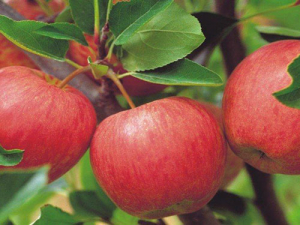MPI launches industry-wide project to manage feral deer
An industry-wide project led by Ministry for Primary Industries (MPI) is underway to deal with the rising number of feral pests, in particular, browsing pests such as deer and pigs.
 Apple and stonefruit industry members have welcomed MPI's decision to release the plants from containment.
Apple and stonefruit industry members have welcomed MPI's decision to release the plants from containment.
The Ministry of Primary Industries says it is releasing 20,000 apple plants and 400 stonefruit plants from containment.
MPI had been holding the plants imported by apple and stonefruit growers from the US.
The apple and stonefruit industry members, embroiled in legal action over the seizure of plant and plant material, have welcomed MPI’s latest announcement.
Industry member and owner of McGrath Nurseries, Andy McGrath MPI’s announcement is very encouraging.
“We feel this has vindicated the position we have taken since the very beginning of this issue.”
The plants were seized in March this year after an MPI audit of the facility in March had found that there were incomplete or inaccurate records associated with this material, which raised the prospect of a biosecurity risk.
New Zealand Apples & Pears Incorporated (NZAPI), the industry’s representative association, also welcomed MPI’s decision.
NZAPI chief executive Alan Pollard said this has been an important pathway for the importation of high value apple material, and the varieties caught up in the seizure notices are important contributors to the future growth of our industry.
“It wasn’t that long ago that we were facing the prospect of the total destruction of the material, so to hear that the material is to be released is very good news”.
NZAPI, in consultation with other affected industries, nurseries and growers, completed extensive technical analyses to try and find an alternative solution to destruction. In addition, a comprehensive independent economic analysis identified that the total destruction of all material would have led to losses to the pipfruit and summer fruit industries in excess of $1 billion.
“We take biosecurity very seriously and throughout this process have focussed on how we can have confidence in the integrity of the imported material while mitigating this risk”, Pollard says.
“We are grateful to MPI for considering our submissions and taking those into account, along with their own further analysis, when making their final determination, and we acknowledge the work that the Ministry has done to get us to what we think is a pragmatic solution for those affected.
“There is still a lot of work to do to ensure that there is no repeat of this situation in the future, and we are looking forward to working with MPI on reviewing and improving the plant import pathway”.
The New Zealand apple and pear industry expects export returns to be almost $800m in 2018 and is targeting $1billion in export returns by 2022.
Grace Su, a recent optometry graduate from the University of Auckland, is moving to Tauranga to start work in a practice where she worked while participating in the university's Rural Health Interprofessional Programme (RHIP).
Two farmers and two farming companies were recently convicted and fined a total of $108,000 for environmental offending.
According to Ravensdown's most recent Market Outlook report, a combination of geopolitical movements and volatile market responses are impacting the global fertiliser landscape.
Environment Canterbury, alongside industry partners and a group of farmers, is encouraging farmers to consider composting as an environmentally friendly alternative to offal pits.
A New Zealand dairy industry leader believes the free trade deal announced with India delivers wins for the sector.
The Coalition Government will need the support of at least one opposition party to ratify the free trade deal with India.